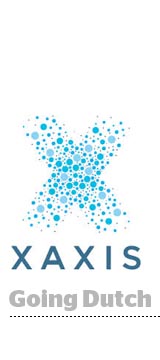 WPP Group’s addressable media unit, Xaxis, has acquired Netherlands-based BannerConnect, a 10-year-old company that evolved from its roots as a traditional publisher network to embrace the exchange-buying trend.
WPP Group’s addressable media unit, Xaxis, has acquired Netherlands-based BannerConnect, a 10-year-old company that evolved from its roots as a traditional publisher network to embrace the exchange-buying trend.
BannerConnect has headquarters in Sittard and satellite offices in London and Amsterdam. In addition to bringing on the 40 employees in those locations, Xaxis gets technologies for digital campaign optimization and visualization. The suite, called Bright, will be rolled out in other markets where Xaxis operates.
“BannerConnect is a very tenured company in the programmatic media buying space,” said Xaxis CEO Brian Lesser. “Our strategy has always been to acquire companies that enable our overall strategy: new products, new markets, new sales channels and scale.”
Terms of the deal weren’t disclosed. According to WPP, BannerConnect’s 2013 revenues were $5.8 million (€4.3 million) and its gross assets at the end of the year were $11.2 million (€8.3 million)
BannerConnect’s sale illuminates holding companies as an emerging path to exit for digital ad companies. While large agencies have frequently acquired digital services businesses, including agencies and consulting firms, they have less often engaged with ad tech. That may be changing.
Agency companies, seeking paths to higher margins, have naturally taken note of the significant media markups employed by the newest wave of so called “independent trading desks” — ad network-like businesses that use DSPs to source media for marketer and agency clients. IPO success story Rocket Fuel has reported gross media margins approaching 60%, for instance. Agency operating margins are traditionally much lower.
(Update: However, Pivotal Research analyst Brian Wieser says gross media margins may be a misleading guidepost. Rocket Fuel’s profit margins — when it becomes profitable — will be much lower than its media margins. And the contrast between agency and ad network margins may not be quite so unfavorable. “Agencies don’t usually take principal risk on the media commitment,” Wieser notes.)
In any case, while agencies are sniffing around ad-tech companies, Xaxis has been more active in this regard than rivals like Omnicom Group, Publicis Groupe, Intepublic Group, Havas and Dentsu. Xaxis also recently snapped up contextual/semantic ad-tech firm Crystal Semantics.
“There are many businesses within the ad-tech space that over time will amount to features or functions within a larger platform. As standalone businesses it may become difficult for some ad-tech companies to survive without strong partnerships or an acquisitions,” Lesser said Monday.
Lesser said WPP will acquire where appropriate, but hinted Xaxis will not buy “full platforms.”
“The next 12 months to two years will bring a tremendous amount of corporate development in the ad tech space,” he said. “If we see businesses that help us achieve our goals we’ll [acquire].”












